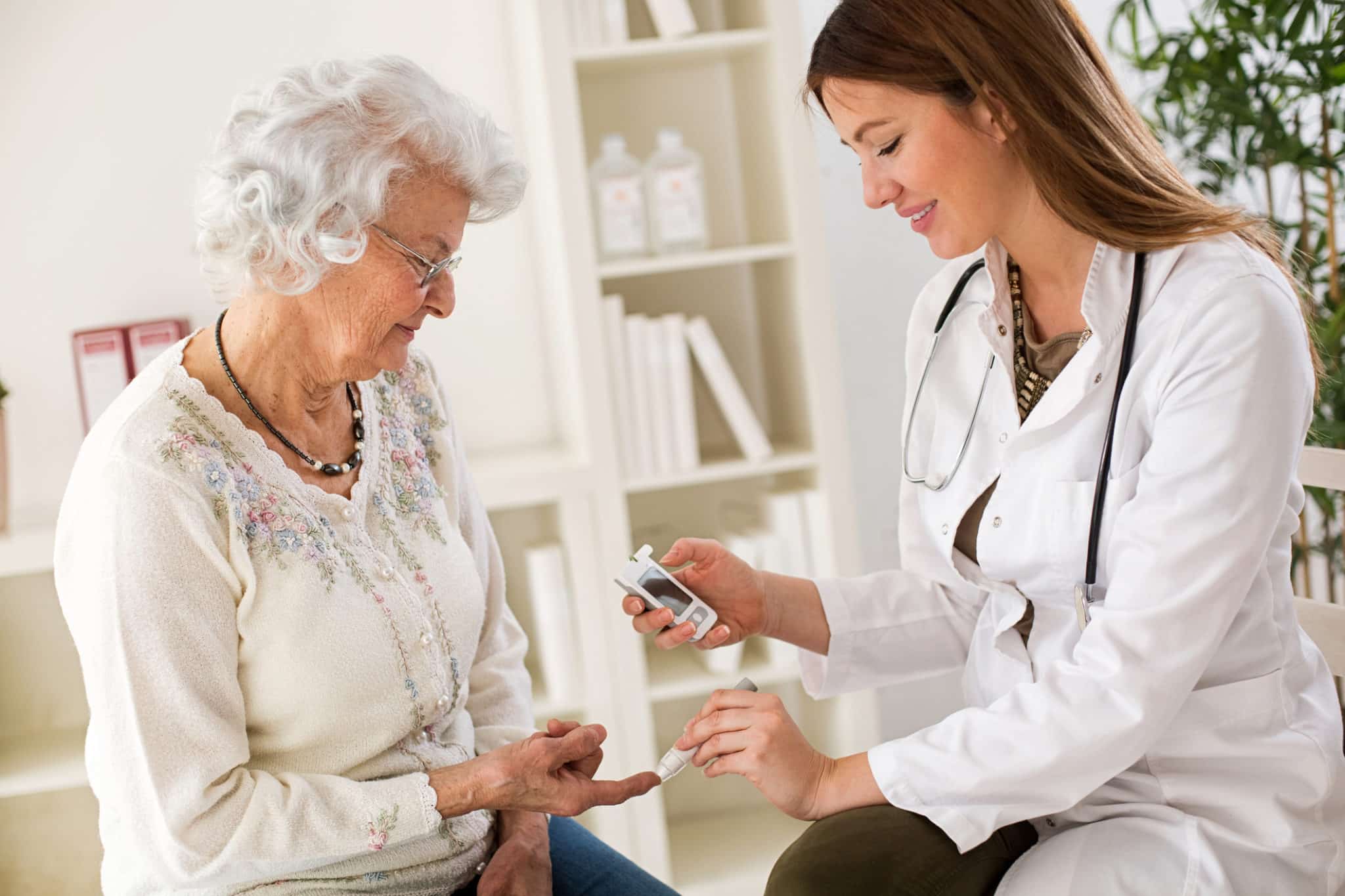Diabetes in Seniors – Signs to Look for and Care Advice

November is Diabetes Month, so our assisted living team in Gloucester County, NJ, is sharing some important information to raise awareness about this serious disease and how it affects seniors to help us all live longer, healthier lives.
What is diabetes?
There are two types of diabetes:
Type One – The body produces no insulin. This type often affects children and young adults.
Type Two – This condition occurs when the body produces insulin but doesn’t use it correctly. It is more likely to affect older adults and is the most common type of diabetes.
Insulin is critical to delivering glucose to the cells of the body, which they need in order to produce the energy required to function properly. If left untreated, or not treated properly, diabetes can lead to serious health problems like strokes, kidney disease, heart disease, blindness, circulation problems that can lead to amputation, and nerve damage.
Risk factors that can lead to diabetes
Although this very dangerous disease has no cure, fortunately we can do a lot to prevent and even control it.
The first step is awareness of different factors that can put you at risk of the disease. These include:
- A family history of diabetes.
- Being overweight, as fatty tissue is more insulin-resistant.
- The less active you are, the higher your risks of diabetes. Being active helps control weight and helps your cells stay insulin-sensitive.
- People from African-American, Hispanic, Asian-America and Native American backgrounds are genetically at higher risk.
- A diagnosis of Polycystic Ovary Syndrome in women.
- High blood pressure; over 140/90 mm Hg.
- High levels of triglycerides and low levels of high-density lipoprotein (HDL) in blood tests.
How to manage diabetes
- Tracking your glucose levels. Your doctor can give advice on in-home monitoring.
- Increasing physical activity. Your doctor or recommended wellness practitioner can suggest activities that you can manage and enjoy, no matter your age or fitness.
- Having a healthy meal plan. This may include foods low in sugar and fat to assist with weight loss, as well as healthy food options that keep weight off and promote stable blood glucose levels.
- Sticking to a physician-recommended medication plan.
Residential living for seniors at our assisted living community in Gloucester County, NJ
Pitman is an assisted living community in Gloucester County, NJ, offering high quality assisted living services in a comfortable, well-supported and beautiful environment. As part of United Methodist Communities, we also offer rehabilitation, access to therapists, respite care and memory care and support services. We welcome seniors from all faith backgrounds.
To find out more about our assisted living community, please visit our website at https://umcommunities.org/pitman/ to contact us today or book a personal tour.




